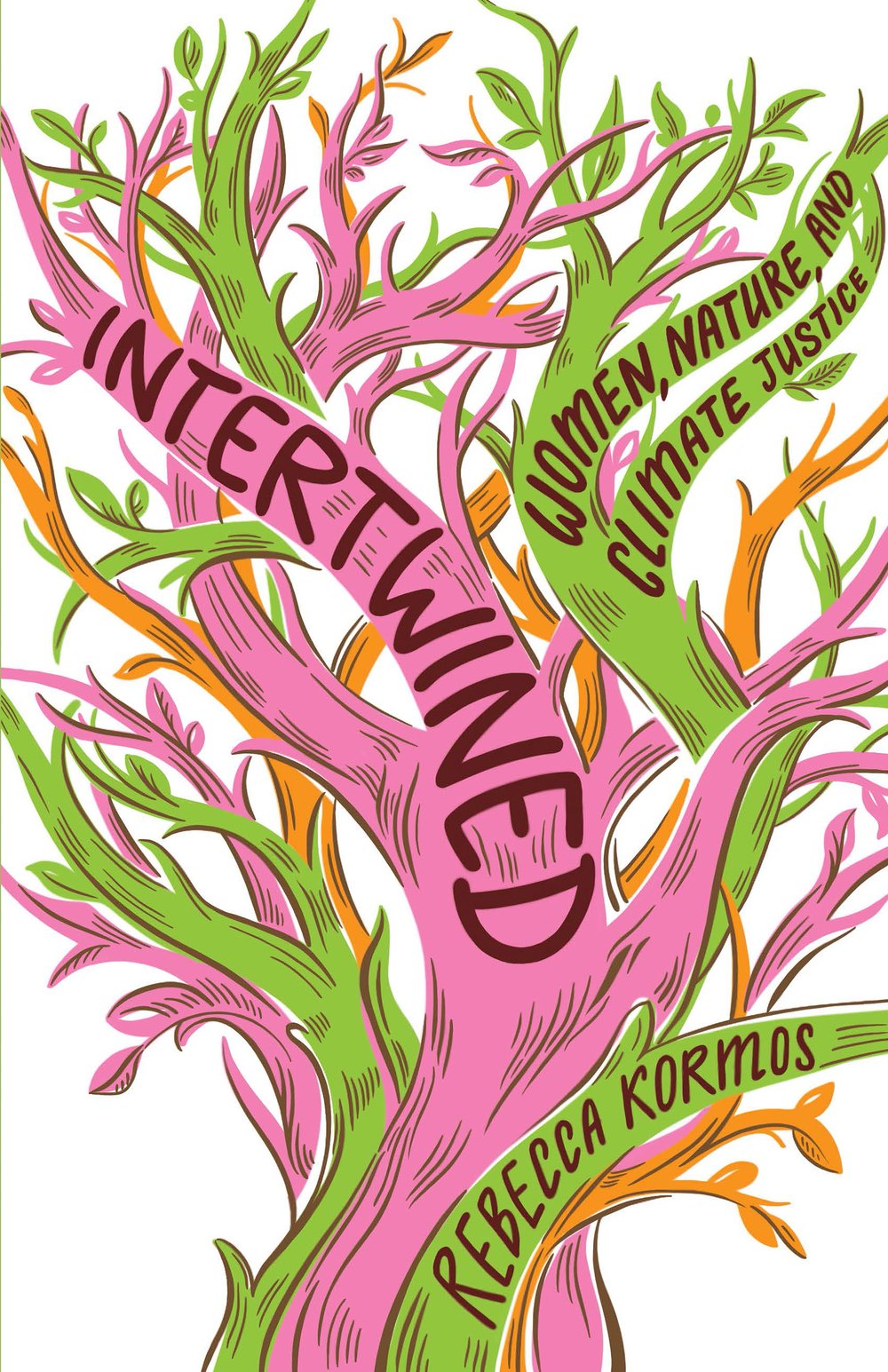Intertwined
Woman, Nature, and Climate Justice

A powerful argument that greater inclusion of women in conservation and climate science is key to the future of the planet.
Women are disproportionately impacted by climate change – floods, droughts, and extreme temperatures overwhelmingly affect women in the short and long term. In some cases, women make up almost 90 percent of casualties during dangerous climate events, and the majority of those displaced in the aftermath are women. Despite this disparity, women are underrepresented at every level of decision-making about the future of our planet: only 24 percent of CEOs in nonprofit conservation and around one-third of the representatives in national and global climate negotiating bodies have been women.
In Intertwined, writer and wildlife biologist Rebecca Kormos elevates the voices of women working to prevent the climate crisis, weaving together their stories to make a powerful case for why women are essential to changing our current trajectory toward catastrophic global warming and environmental degradation. Kormos argues that empowering women is one of the most important solutions to climate change and biodiversity loss: women’s leadership and equal representation is linked to lower CO2 emissions, better forest management, better land protection, less land grabbing, and fewer conflicts over resources.
For readers of All We Can Save and Braiding Sweetgrass, Kormos joins the ranks of recent breakthrough efforts to showcase women’s voices in the movement to combat climate change. Kormos takes this endeavour one step further with a global, intersectional narrative of how women and gender nonconforming individuals are doing the crucial work at the local and national levels to reframe how we think about environmental activism. Ultimately, Intertwined proves that climate justice is inextricable from gender equality.

Rebecca Kormos is her first book. She lives in Berkeley, California.
